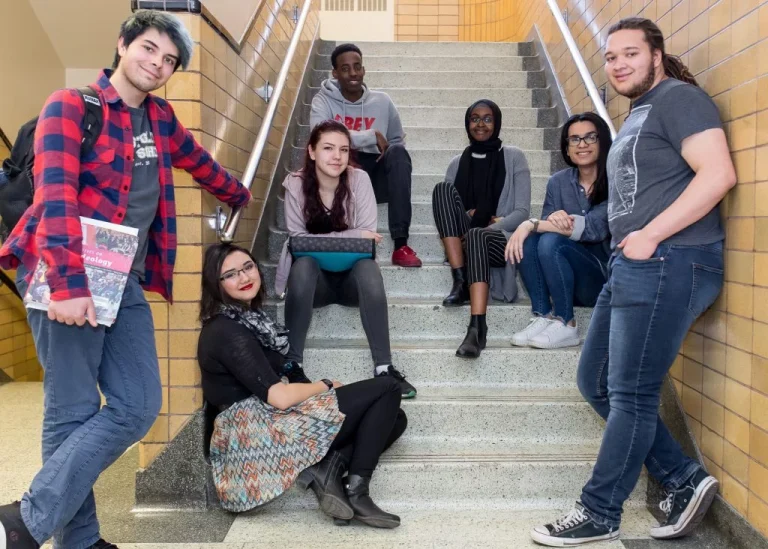More than 262,000 people who were struggling received supports through a United Way funded program in 2023.
A strong and vibrant community is better equipped to respond to new and urgent needs and challenges. United Way of the Alberta Capital Region takes a systems-wide approach to collaborate and deliver local programs and services that address multiple facets of community well-being.
Our United Way is focused on:
Together, we can build the foundation of a strong community that can tackle any challenge.
Graduating high school sets a strong foundation for a successful and stable future. But too many families experience barriers that make it harder to stay in school.

United Way and our partners break down these barriers, walking alongside people on their path to educational success.
We support services and resources that improve school readiness and academic achievement, increase school and community engagement, and develop resilience to handle life’s challenges. By championing equitable educational opportunities from early years to high school, we help students — and families — thrive academically and socially.
n 2023, 48,601 people accessed educational supports through United Way programs and funding, including:
Strong mental health is a vital aspect of a person’s overall well-being. It influences how they cope, learn, work, and contribute to our community. There is a significant unmet need for community-based mental health supports in our region, and it’s challenging to navigate the system.

United Way collaborates with partner agencies to support mental health in our community, championing accessible resources, raising awareness, improving navigation, and promoting early intervention. By developing a robust network of resources and improving accessibility, we make it easier for people to find the support they need.
In 2023, 124,478 people strengthened their mental well-being through United Way, including:
To build a resilient community, people must have access to a diverse range of employment and income opportunities that enable financial security. Key steps along the path to financial security include job training, employment opportunities, and financial education.

United Way and our partners support comprehensive programs and initiatives that provide financial education, resources, and opportunities for economic empowerment. Together, we can ensure that everyone has the knowledge, tools, and confidence to secure a brighter future.
In 2023, 89,834 people improved their financial security with United Way support including:
United Way brings together caring changemakers to make a meaningful difference in our community through local programs and services that empower people to improve their lives.
Learn MoreUnited Way of the Alberta Capital Region works collaboratively across the social services sector, identifying pressing community needs and implementing the most impactful solutions.
Learn MoreUnited Way supporters show the true power of community by rallying together to help those in need. See how your support helps your neighbours in the Edmonton region.
Learn More